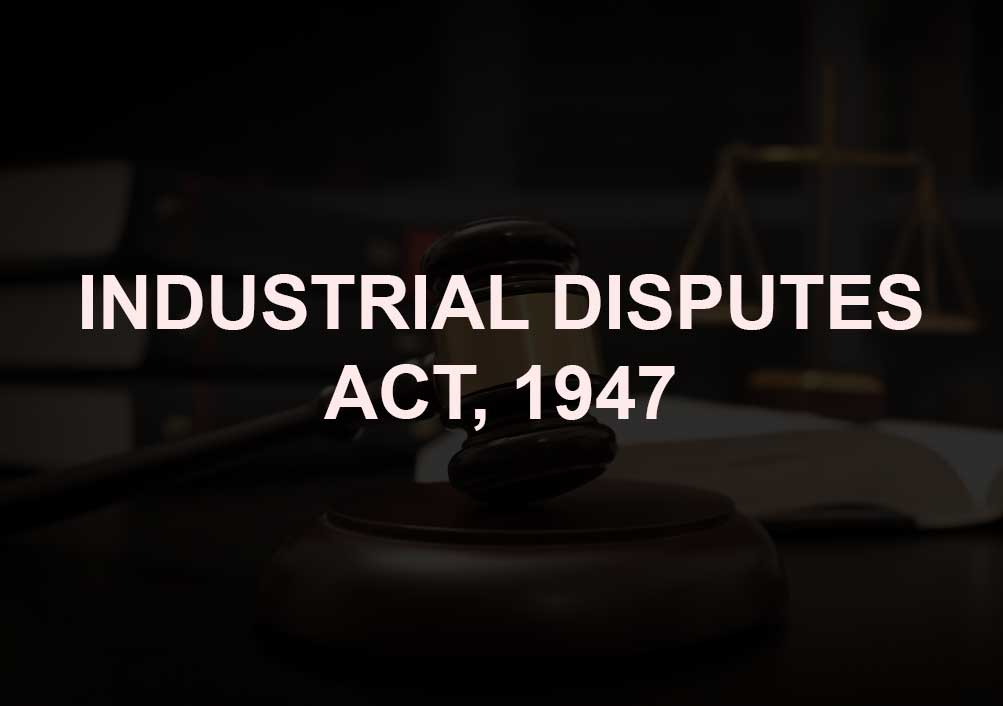Labour Court must exercise its jurisdiction u/s 11A of Industrial Disputes Act, judiciously and not whimsically:Supreme Court

Read Judgment: Standard Chartered Bank vs. R.C Srivastava
Pankaj Bajpai
New Delhi, October 1, 2021: The Supreme Court has recently opined that the decision of the Labour Court should not be based on mere hypothesis and it cannot overturn the decision of the management on ipse dixit.
A Division Bench of Justice Ajay Rastogi and Justice Abhay S. Oka observed that the Tribunal has completely overlooked and exceeded its jurisdiction while interfering with the finding recorded during the course of departmental enquiry in furtherance of which, the employee(respondent) was dismissed from service.
The domestic enquiry is to be tested on the principles of preponderance of probabilities and if a piece of evidence is on record which could support the charge which has been leveled against the delinquent unless it is per se unsustainable or perverse, ordinarily is not to be interfered by the Tribunal, more so when the domestic enquiry has been held to be fair and proper, added the Bench.
The background of the case was that a chargesheet dated January 27, 1988 was served upon the employee (respondent) for the alleged delinquency committed by him on January 12, 1988 in discharge of his duties, on the allegation of drunkenness within the premises of the Bank, manhandling and assaulting the senior officers as well as hurling abuses at the management
Accordingly, a departmental enquiry was held in terms of the Bipartite Settlement and after due compliance of the principles of natural justice, the Enquiry Officer had held the charges proved against the employee. The disciplinary authority also confirmed the Enquiry Officer’s finding and punished him with the penalty of dismissal from service by an order dated August 22, 1991.
The Industrial Tribunal however reversed the order, directing reinstatement of the employee in service with full back wages, seniority and all the consequential benefits, upon finding that the Bank’s management had miserably failed to establish the charges levelled against the respondent.
The Tribunal’s order came to be challenged by the Bank before the High Court, but the same was dismissed.
After considering the facts & circumstances of the case, the Top Court observed that it is not the case of the respondent that the domestic enquiry has not been conducted as per the Bipartite Settlement dated October 19, 1966, which was applicable for holding domestic enquiry in reference to misconduct committed by a workman and the alleged misconduct for which the respondent workman was charge-sheeted.
The respondent had also not recorded his own statement in defence in the course of enquiry but produced watchman and an ex-employee of the Bank who confronted the statement of the witnesses of the management with whom the alleged incident occurred, added the Court.
The Top Court also found that enquiry officer after affording opportunity of hearing and due compliance of principles of natural justice recorded the finding of charge being proved and confirmed by the disciplinary authority.
Therefore, the Division Bench opined that the decision of the Labour Court should not be based on mere hypothesis and it cannot overturn the decision of the management on ipse dixit.
The Bench elaborated that the jurisdiction of Labour Court u/s 11A of the Industrial Disputes Act, 1947 although is a wide one but it must be exercised judiciously and not whimsically or capriciously.
Hence, Apex Court set aside the Award passed by the Tribunal and confirmed by the High Court as not sustainable in law.
However, looking to the peculiar facts of this case where the respondent workman had been paid Rs.57,16,517.72 and had attained the age of superannuation, the Apex Court granted stay in reference to back wages, while upholding the order of penalty of dismissal from service passed by the authority in the domestic enquiry.
The Apex Court also considered it appropriate to observe that no recovery shall be made in reference to the payment which has been made over to the workman in the interregnum period.
Sign up for our weekly newsletter to stay up to date on our product, events featured blog, special offer and all of the exciting things that take place here at Legitquest.




Add a Comment